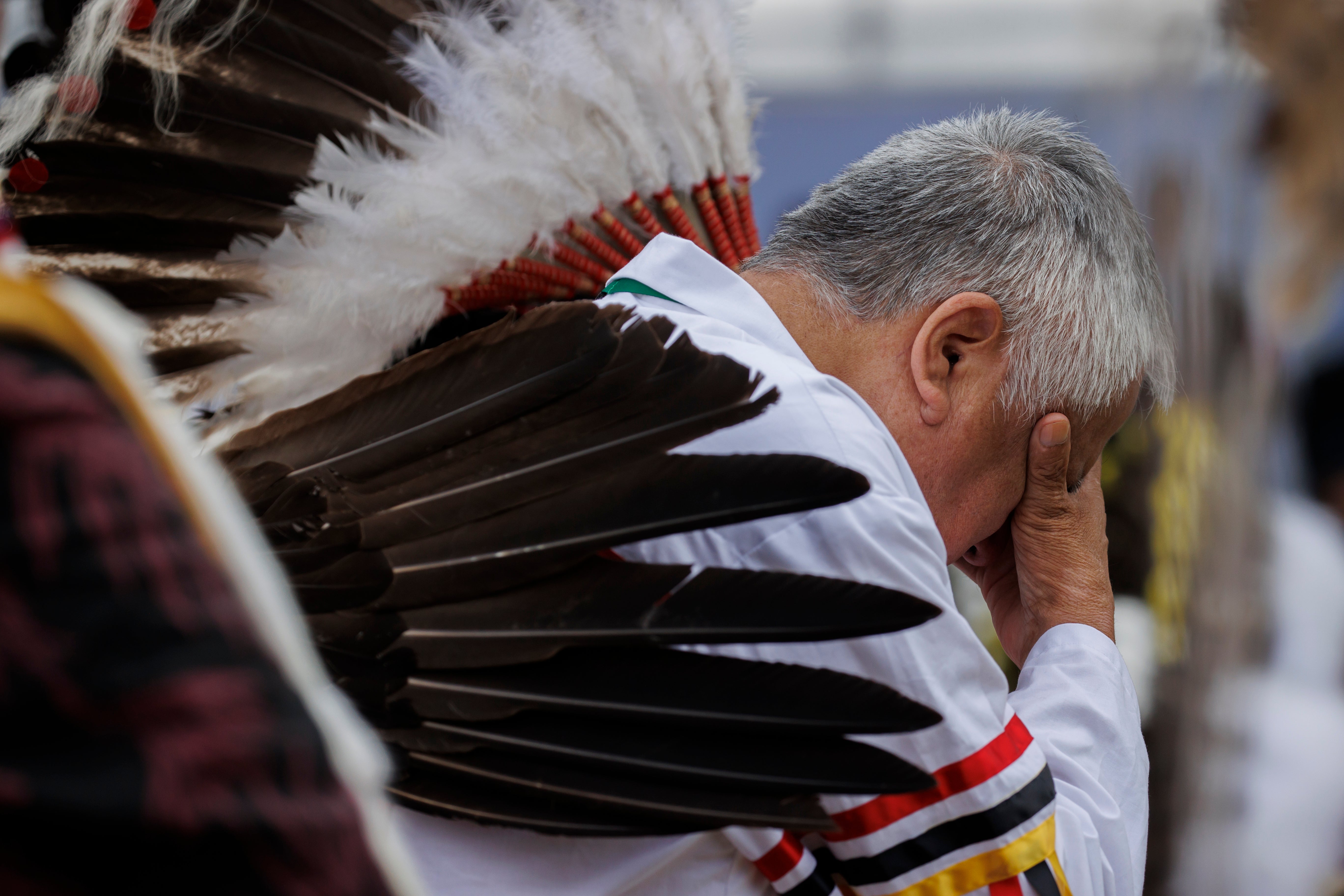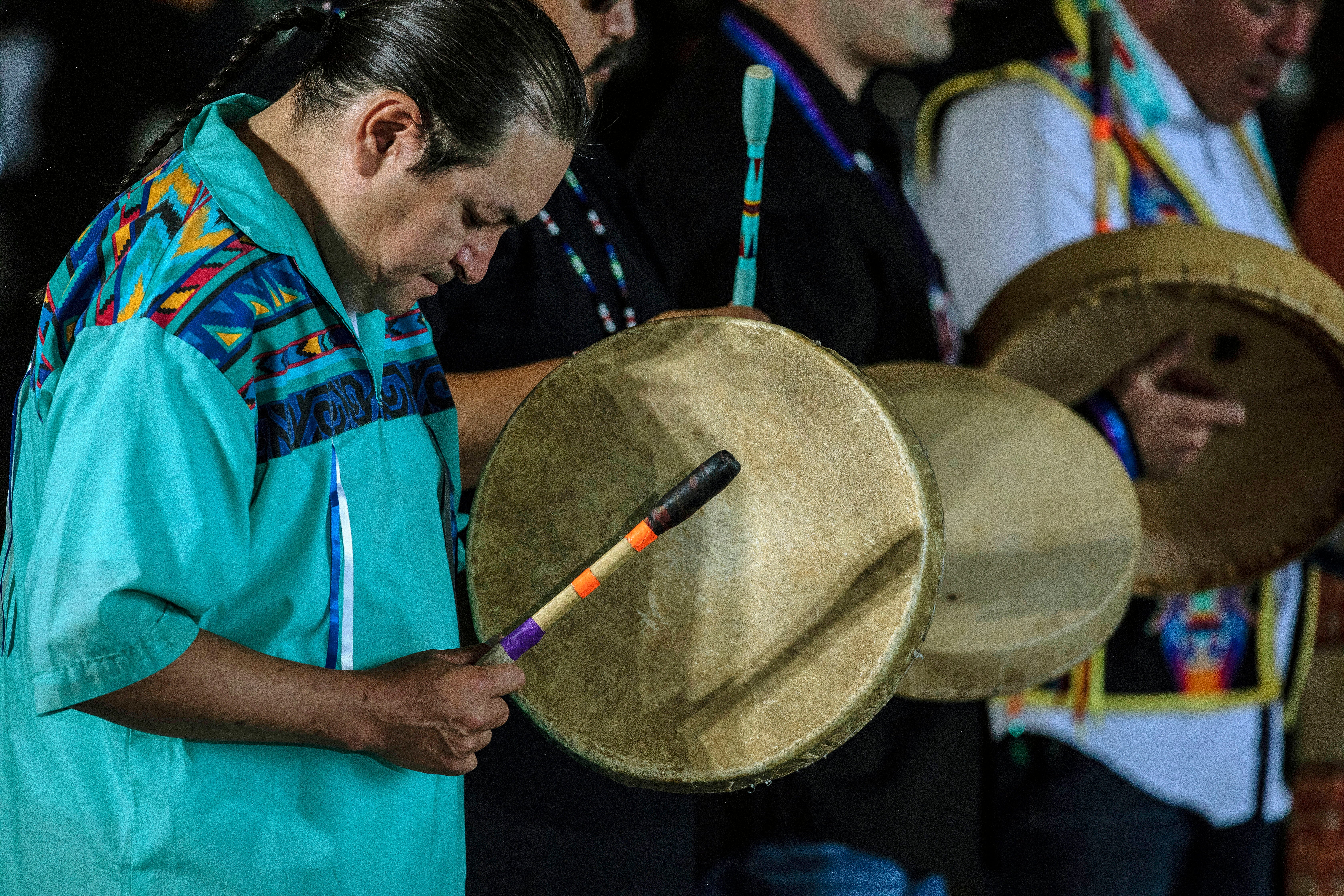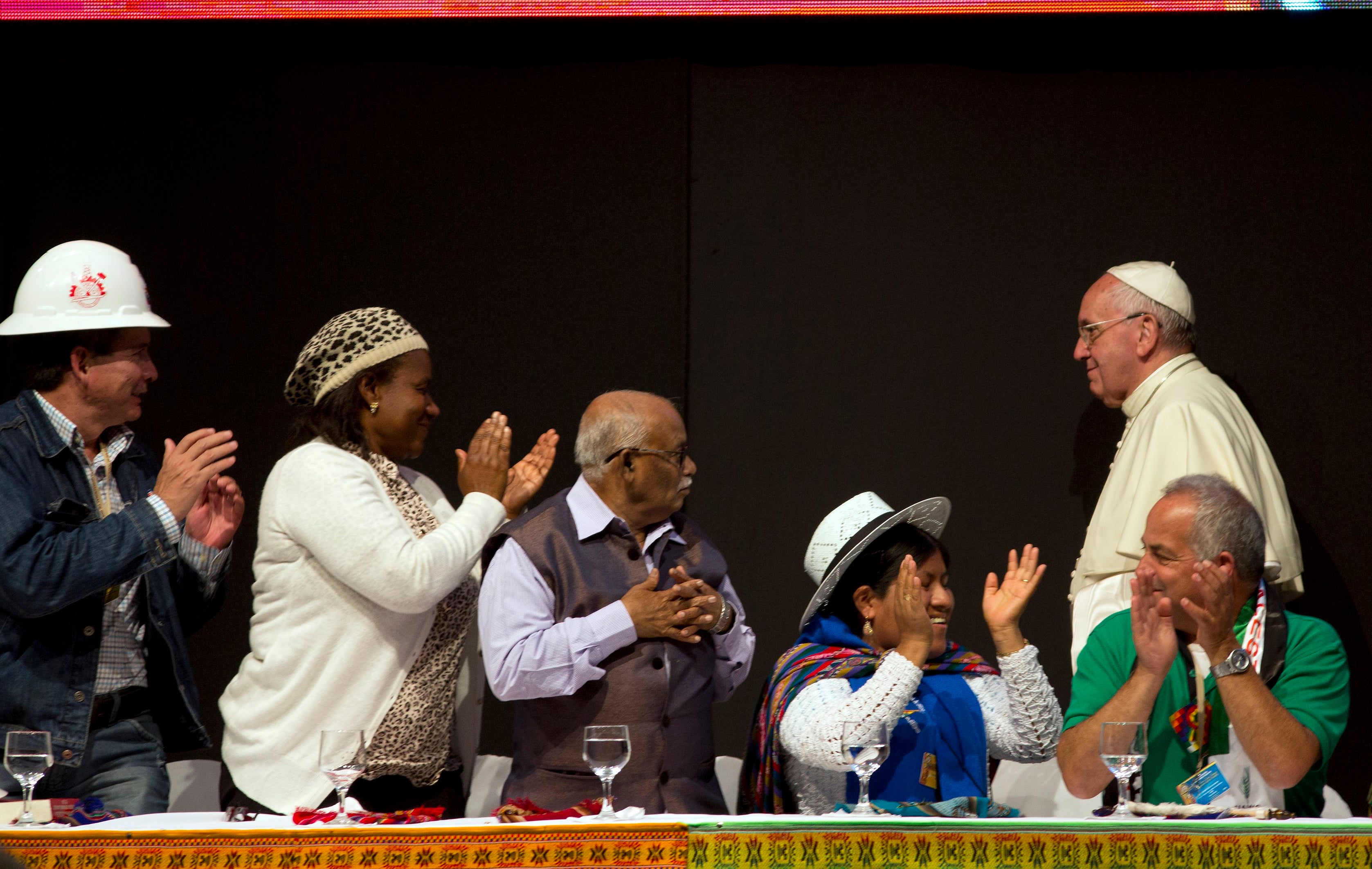Pope Francis arrives in Canada to apologise to indigenous communities for abuse at former residential schools
Roughly 150,000 indigenous children forced into residential school system in Canada
Pope Francis arrived in the indigenous community of Maskwacis, Alberta, on Monday, where he delivered a long-sought apology for the Catholic Church’s role in Canada’s “residential school” system.
"I humbly beg forgiveness for the evil committed by so many Christians against the Indigenous peoples,” the pope said.
He prayed silently at the cemetery near the site of the former Ermineskin Indian Residential School, as thousands of indigenous people, many in elements of traditional dress, gathered to meet the church leader.

Between 1883 and the 1970s, an estimated 150,000 kids were separated from their families at the schools, where indigenous children were brutally forced to assimilate and often the subject of neglect and physical and sexual abuse.
Catholic orders operated 66 of the 139 government-funded residential schools, the sites of what Canada’s Truth and Reconciliation Commission has deemed a “cultural genocide.”
“I ask forgiveness, in particular, for the ways in which many members of the church and of religious communities cooperated, not least through their indifference, in projects of cultural destruction and forced assimilation promoted by the governments of that time, which culminated in the system of residential schools,” the pope told the assembled crowd, which included those whose families had been touched by the residential school system, as well as Canadian Prime Minister Justice Trudeau.
The pope has called the six-day trip a “penitential pilgrimage.”

“It’s something that is needed, not only for people to hear but for the church to be accountable,” Sandi Harper, whose late mother attended a residential school, told The Associated Press, calling the apology “very genuine.”
“He recognises this road to reconciliation is going to take time, but he is really on board with us.”
It follows meetings this spring at the Vatican between the pope and respresentatives from Canada’s three main indigenous groups: the First Nations, the Metis, and the Inuit.
The Canadian tour will include stops at other residential school sites and events in Alberta, Quebec City, and Iqaluit.
Pope Francis called for a thorough investigation into the residential school system and the Catholic Church’s role in it during the event on Monday.
"An important part of this process will be to conduct a serious investigation into the facts of what took place in the past and to assist the survivors of the residential schools to experience healing from the traumas they suffered," he said.
Indigenous communities have been calling for more access into church archives to investigate the full extent of the abuses at residential schools in Canada and beyond.
Pope Francis also said the blame lies beyond just the church alone, faulting the “colonising mentality of the powers” during the century in which residential schools were operating.
The pope arrived in Edmonton on Sunday.
There, he kissed the hand of Elder Alma Desjarlais, a survivor of one of Canada’s residential schools.
Hundreds of bodies were found in an unmarked grave at the site of a former residential school in Saskatchewan last summer, setting off renewed calls for accountability for the church’s role in the conquest of indigenous peoples in North America.
Even before the shocking discovery last June near the former site of the Marieval Indian Residential School, indigenous communities have long called on the Catholic Church to acknowledge its part in colonisation.
In April, Pope Francis formally apologised for the “deplorable conduct” of Catholic leaders in Canada during the residential school era, telling a group of gathered indigenous leaders in Vatican City he deeply regretted “the abuses you suffered and in the lack of respect shown for your identity, your culture and even your spiritual values.”
“All these things are contrary to the Gospel of Jesus Christ,” he added. “For the deplorable conduct of these members of the Catholic Church, I ask for God’s forgiveness, and I want to say to you with all my heart: I am very sorry. And I join my brothers, the Canadian bishops, in asking your pardon.”

The pope, the first leader of the Catholic Church from the Americas, apologised in 2015 for the church’s “grave sins” during colonisation.
Join our commenting forum
Join thought-provoking conversations, follow other Independent readers and see their replies
Comments